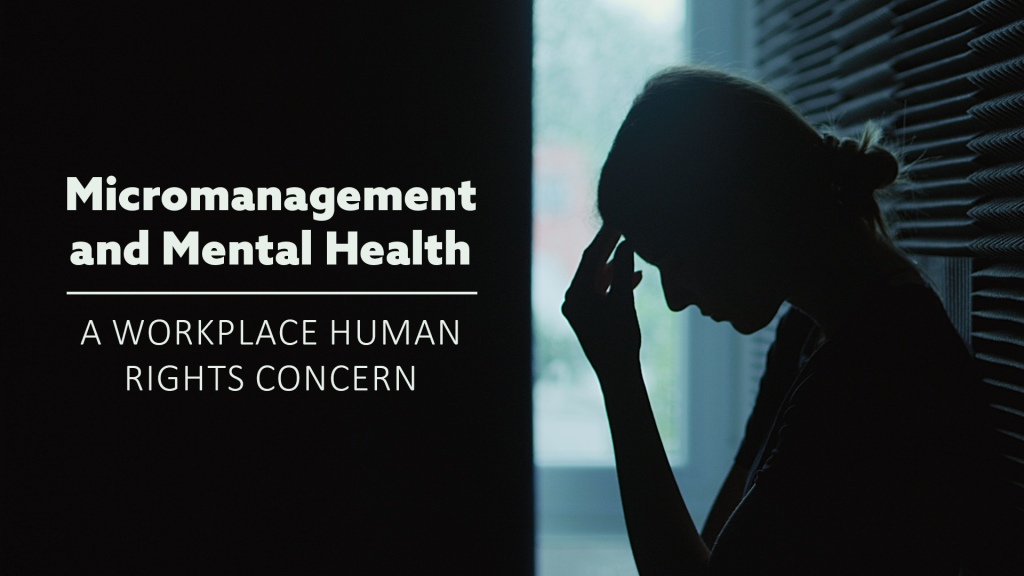
In the modern workplace, the line between diligent supervision and micromanagement is often blurred, leading to significant impacts on employee mental health. Even more concerning is the emerging discussion on whether these practices might constitute a breach of human rights within the work environment.
The excessive control over the employees’ duties can have profound psychological effects. Employees under constant surveillance and criticism may experience heightened levels of stress and anxiety, feeling as though they are perpetually walking on eggshells. This relentless pressure not only dampens morale but can also lead to more serious mental health issues such as depression, burnout, and decreased self-esteem. The psychological safety of the workplace is compromised when employees no longer feel they are trusted to perform tasks without overbearing management oversight.
Research highlights the importance of autonomy in the workplace for employee mental well-being. Autonomy is linked to higher job satisfaction, increased motivation, and better overall mental health. On the other hand, the lack of autonomy, a characteristic of micromanaged work environments, strips employees of the opportunity to engage meaningfully with their work, potentially leading to hostility and a sense of irrelevance.
The discussion of micromanagement as a human rights issue revolves around the principle of dignity in the workplace. Human rights principles, while broad, enshrine the right to fair and respectful treatment within all aspects of life, including employment. Persistent micromanagement violates this principle by undermining an individual’s dignity, suggesting that they are not competent to manage their responsibilities. This may be seen as a form of psychological harassment or bullying.
The International Labour Organization (ILO) is devoted to promoting social justice and internationally recognized human and labour rights. They have set forth guidelines suggesting that a work environment should not only be free from physical hazards but also psychological ones. Therefore, practices that harm an employee’s mental well-being could be in violation of broader human rights norms.
Recognizing the negative impacts of micromanagement and its potential human rights implications calls for a significant shift in management practices. Employers must foster environments where autonomy is encouraged, and employees feel valued and trusted. Training for managers should emphasize the importance of leadership styles that support autonomy and recognize the detrimental effects of micromanagement.
Moreover, discussion around workplace practices and mental health must include considerations of dignity and human rights, ensuring that employment laws evolve to protect these aspects rigorously.
The conversation about micromanagement, its effects on mental health, and the potential for it to be recognized as a human rights issue is evolving. As awareness grows, it is imperative for employers to re-evaluate workplace practices, ensuring they uphold the principles of dignity, respect, and autonomy in the workplace. Only through bold action can we hope to create workplace environments that not only mitigate the risks associated with micromanagement but also promote a culture of health, well-being, and human dignity.
If you believe that you are a victim of Micromanagement, speak to your Union Representative.
Sam Padayachee
Human Rights Advocate